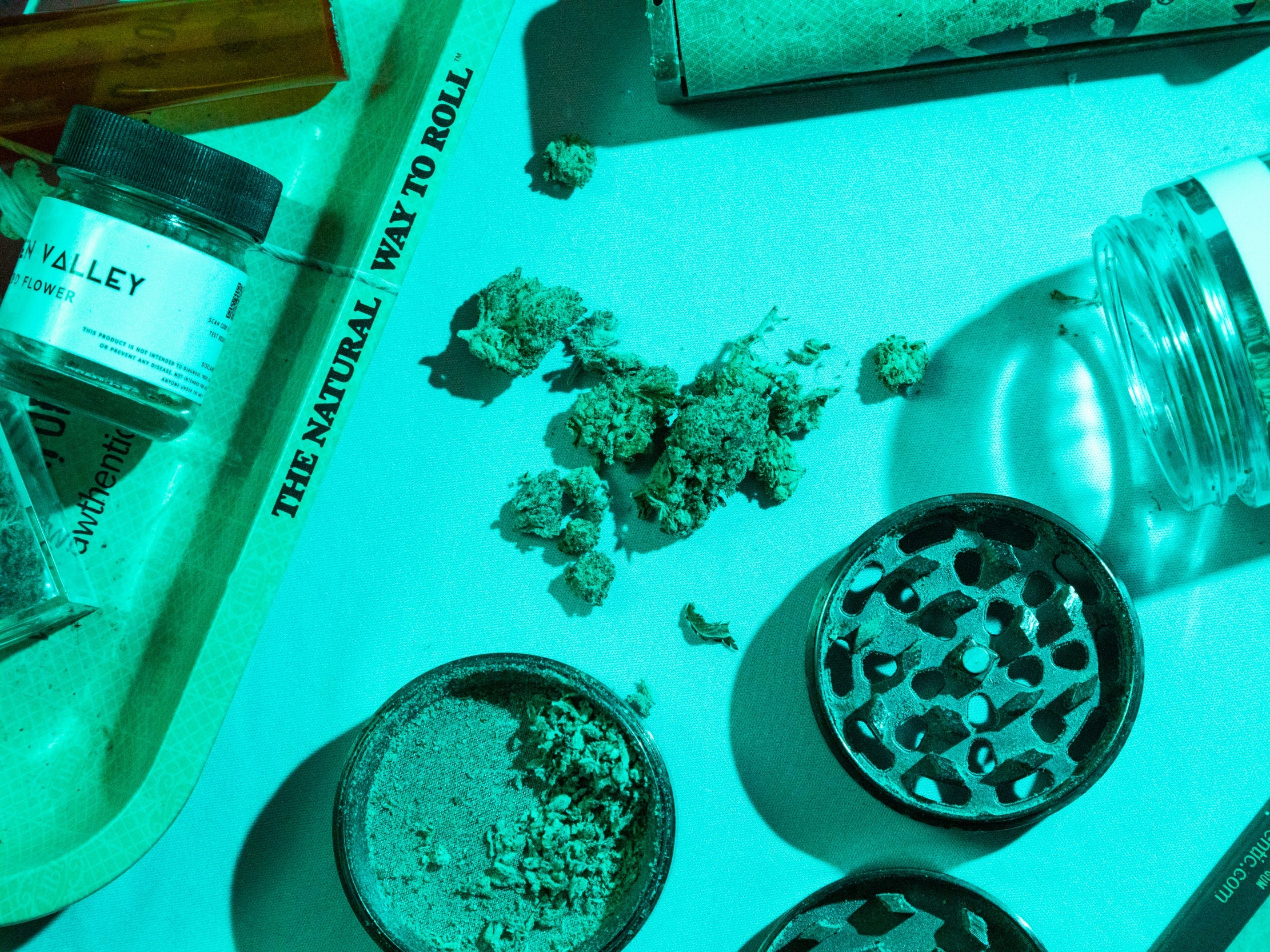- CBD, a non-psychoactive cannabis compound, has skyrocketed in popularity as a treatment for anxiety, pain, and a myriad of other ailments. It’s infused into products like lotions, balms, gummies, and even beer.
- While CBD is generally regarded as safe, there’s a lot we don’t yet know about its long-term health effects, so it’s best to use in moderation, according to a toxicologist.
- Visit Insider’s homepage for more stories.
Cannabidiol, or CBD for short, is one of the hottest new trends in the wellness space. It’s a marijuana compound touted for relieving pain and anxiety without the psychoactive effects typically associated with cannabis use.
Some products with CBD claim to treat everything from insomnia to acne and even the novel coronavirus. These claims go far beyond what evidence supports, and there’s still a lot we don’t know about the drug, toxicologist Thomas Lewandowski said in a presentation at the American Chemical Society’s 2020 conference.
But it’s a promising, and likely safe, treatment for anxiety when used in moderate amounts, Lewandowski said.
There is research to support CBD for anxiety and seizures
There’s already research to support evidence-based use of the compound to treat anxiety and seizures.
Most of the clinical data on CBD use by humans comes from trials of an FDA-approved prescription CBD drug called Epidiolex. That research found patients who took CBD experience significantly fewer seizures than those on a placebo, and also found CBD appeared to be safe to use for the 14-week period in the study.
There have also been numerous behavioral studies on animals and humans using CBD to treat anxiety. Although the sample size of the human studies have been small, and mostly on men, there's promising evidence that small to moderate doses of CBD could safely help alleviate anxiety.
"Overall, there's fairly strong evidence that CBD does have an anti-anxiety effect," Lewandowski said. "If we can just do some long-term studies and include some susceptible populations, I think this is an effect that's likely to be well supported and possible to have as a health claim."
Be wary of untested claims about CBD's benefits
Many CBD products claim to treat a variety of other conditions, including acne, insomnia, pain, depression, substance abuse, inflammation, and side effects of chemotherapy. Some also say they'll boost energy, focus, or your sex life.
These claims may be rooted in some science, such as a single case report, nonclinical studies, or lab tests, Lewandowski said. But they often go beyond what's been proven.
"A lot of these claims are taking one piece of information and running with it, and I think they're really making claims that are well ahead of the available science," Lewandowski said.
Be cautious of using multiple CBD products every day that can exceed the recommended safe dose
Based on the data from the prescription drug Epidiolex, CBD appears to be safe for human use in doses of up to 15 mg of CBD per kilogram of a person's body weight.
By comparison, one popular brand offers gummies containing 10 mg of CBD each, with a full bottle containing 200 mg total.
For skincare products, Lewandowski estimates the absorption rate is about 10% of the CBD in the product. A typical balm or lotion might contain between 200 mg to 1,500 mg per package.
Lewandowski recommends that adults keep their consumption to below 1,500 mg total per day to stay within safe limits. That includes all products a person might use in a single day, including tinctures, lotions, and gummies. A single product might contain safe dose, but the compound effect could be risky.
Research on Epidiolex found CBD doses of 20 mg per kg of bodyweight a day can be therapeutic, but have the potential to cause liver problems in some people (the issues resolved after patients stopped taking CBD). These could be compounded in combination with other medications.
It's cause for concern, Lewandowski said.
Some animal trials have found much higher doses of CBD, around 100 times the dose tested on humans, could cause liver damage as well as potential reproductive and developmental issues.
More research is needed to better understand how CBD affects long-term health.
Epidiolex is the only CBD product currently approved by the FDA. Other products are unregulated, making it tricky for people to know just what they're getting.
"Exposure to CBD products as directed seems to be safe, but manufacturers need to understand how their products may be used in ways they don't entirely expect," Lewandowski said.
Read more:
